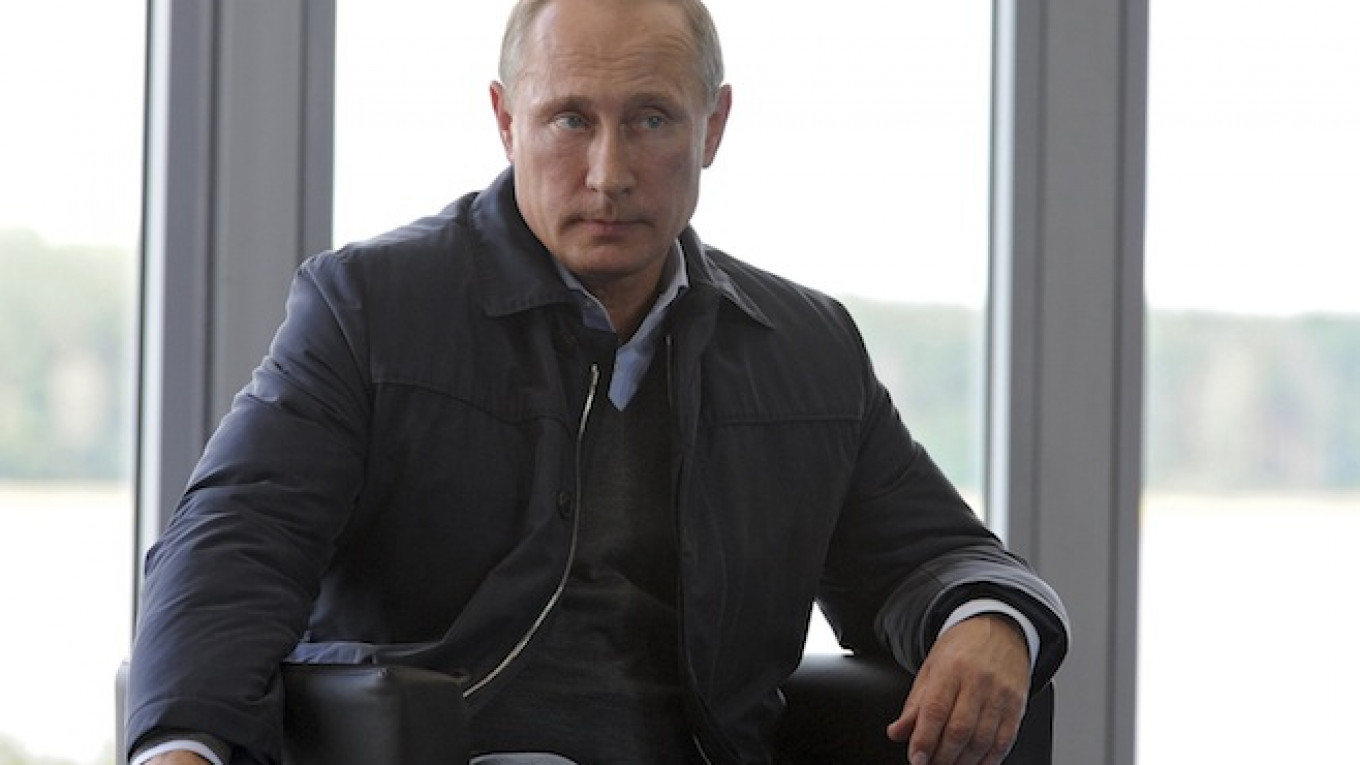Russia cannot spend more of the $83 billion parked in its National Welfare Fund, or NWF, President Vladimir Putin said Monday, after the government recently raised the cap on how much of the fund can be used for domestic investments.
Spending pressure on the government has increased as a result of the Ukraine crisis, which has led several Russian companies to request state finance to compensate for the closure of Western capital markets.
The NWF, a fiscal reserve financed from oil taxes, has become a prime target for lobbyists, notably since Russia has earmarked 60 percent of the fund for internal investments, particularly infrastructure projects.
Putin indicated no objection to such lobbying.
"If someone thinks that the funds earmarked from the NWF need to be directed toward other goals, in particular … goals for creating [geographical] territories for priority development, then by all means," he said, in comments quoted by Interfax.
"But I can say at once that we cannot now increase expenditures from the NWF."
Putin was speaking at a regional development meeting in the Far East, where a dispute arose between Russian Railways and the Far East Development Ministry over which projects should have priority.
Russia recently raised the cap on domestic investments from 40 percent of the fund, leading to concerns the Kremlin is taking risks with fiscal reserves intended to provide future support for an overstretched pension system.
Last month Russia's largest oil company Rosneft asked the government for a $40 billion cash injection, to be financed from the NWF, to help it weather Western sanctions imposed in response to the Ukraine crisis.
The economic development minister later said that Russia may provide some state support for Rosneft but significantly less than the amount asked for.
A Message from The Moscow Times:
Dear readers,
We are facing unprecedented challenges. Russia's Prosecutor General's Office has designated The Moscow Times as an "undesirable" organization, criminalizing our work and putting our staff at risk of prosecution. This follows our earlier unjust labeling as a "foreign agent."
These actions are direct attempts to silence independent journalism in Russia. The authorities claim our work "discredits the decisions of the Russian leadership." We see things differently: we strive to provide accurate, unbiased reporting on Russia.
We, the journalists of The Moscow Times, refuse to be silenced. But to continue our work, we need your help.
Your support, no matter how small, makes a world of difference. If you can, please support us monthly starting from just $2. It's quick to set up, and every contribution makes a significant impact.
By supporting The Moscow Times, you're defending open, independent journalism in the face of repression. Thank you for standing with us.
Remind me later.






